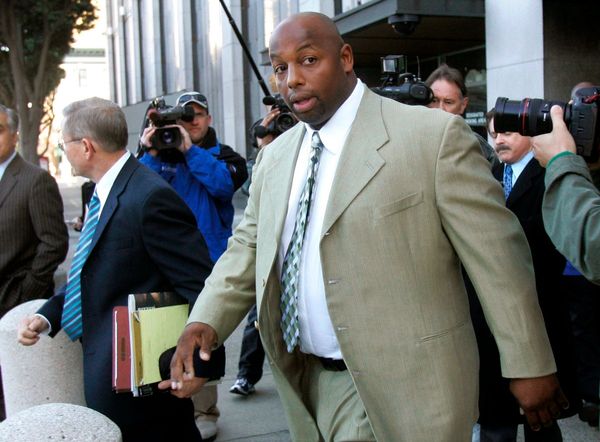
“Sadly recent media does not help encourage sporting sponsorships.” With that — and an expression of their earnest desire to not “add to netball’s disunity problems” — Gina Rinehart’s companies Hancock Prospecting and Roy Hill took their $15 million off Netball Australia’s balance sheet.
The problem, Rinehart said in separate comments, is that sport should not be used to push social or political views, implying that must have been the motivation behind Indigenous netballer Donnell Wallam’s concerns about wearing the Hancock name on her uniform when she debuts for Australia next week.
Confusion abounds, as commentators try to find some stable ethical ground between Wallam’s stand, that of Australian cricket captain Pat Cummins (who has reportedly expressed disquiet about Alinta Energy’s sponsorship of his team), and the seven Manly Warringah rugby league players who recently refused to wear their club’s rainbow jersey because it offended their religious beliefs about LGBTQIA+ people.
It would help, of course, if we stuck to the facts and resisted the temptation to project; precisely what Rinehart failed to do when she threw her toys out of the cot. Her statements attempt to reframe the story as an objection to sponsorship by mining companies, but Wallam and her teammates who stood in support of her never raised an objection on that basis.
The issue, about which Wallam was explicit, focused exclusively on the Hancock name — because it comes from Rinehart’s father and company founder, Lang Hancock. Wallam has an issue, she said, with comments he made in the 1980s. In an interview, Hancock addressed the “Aboriginal problem” in these terms:
The ones that are no good to themselves and can’t accept things, the half-castes — and this is where most of the trouble comes — I would dope the water up so that they were sterile and would breed themselves out in future and that would solve the problem.
Well, you’ll either understand Wallam’s concern, or you won’t. There’s no point trying to convince anyone either way.
The issue is very specific and has neither relationship nor relevance to what Rinehart was claiming, nor to the question of whether Cricket Australia should be accepting money from Alinta.
But what are we to do with all this? The sports-media cartel is uniformly panicked and loudly predicting the end of professional sport altogether if this trend of allowing the “personal brand” of athletes to dictate sponsor selection is allowed to continue. Where, they ask, will the money come from, you idiots?
There are a couple of things one can say about this amoral panic. First, we’ve heard it before. In the 1970s–80s, professional sport was almost entirely funded by tobacco companies — remember that? Sporting bodies decried the moves to abolish tobacco sponsorship, because where would the money come from then? Largely, it came from alcohol companies. Then online gambling companies. What it never did was stop flowing.
One thing of which we can be sure is that if there is a commercial benefit to corporate sponsorship of sport, that sponsorship will exist. If no such benefit exists, meaning the dollars don’t add up, then that begs a different question. If swimming, netball, volleyball or any other sport relying on what is essentially corporate philanthropy can’t “survive” otherwise, then it isn’t a business, it’s a charity.
The second point is that you can’t put the genie back in the bottle. Like it or not, athletes have opinions, values and beliefs. They are employees, yes, and can be contractually constrained in their expression and performance of those beliefs. They have no greater right than anyone else to act inconsistently with the commercial imperatives of their employers, subject to such protection as they get from anti-discrimination laws.
But, again, the practical reality comes down to the law of supply and demand. Cricket Australia can’t sack Pat Cummins for voicing his objection to carbon-spewing money, because he has cultural and commercial power that makes him more or less immune. That’s the real reason for the disconcertment in the boardroom. By contrast, the Manly players were simply stood down, although the ensuing drama ended up taking out their coach.
As for netball, the problem is simple. Wallam had every right to speak up, and her fellow players were right to support her. Rinehart could have handled the situation differently, by acknowledging the real pain Wallam was in and offering an open-handed path to talking about and resolving the issue of its cause. Instead, she walked, complaining about the evils of “virtue signalling”. So be it. Netball will survive, either with buckets of money enabling it to keep its top players well paid and internationally competitive, or with no money and a return to merely being the biggest children’s participation sport in Australia.
Either way, the climate will continue to degrade and racism will not be eradicated. Sport, with uniforms emblazoned by sponsors’ logos or not, will go on.







